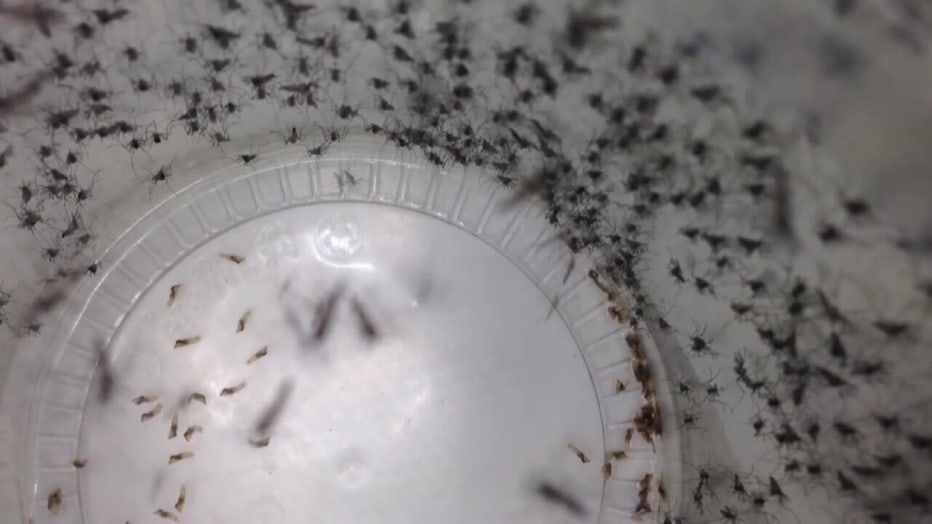Mosquito-borne illness found in Bay Area after Hurricane Milton
Cases of dengue fever reported in Tampa Bay region
FOX 13's Jordan Bowen dives into dengue fever detected in the Tampa Bay area after Hurricane Milton.
TAMPA, Fla. - The Florida Department of Health (FDH) in Hillsborough County has now confirmed a fourth human case of the mosquito-borne illness dengue fever. As a result, officials are conducting aerial spraying to combat the spread.
Pockets of standing water left behind from hurricanes Milton and Helene can still be found throughout Tampa Bay and that's a major concern for health officials as it can create a perfect breeding ground for mosquitoes. Multiple counties, including Hillsborough and Polk, are now reporting a surge in the mosquito population following both storms.
"There is standing water still everywhere. The mosquitoes breed, and then someone--that's the case we're dealing with now--has brought dengue from another country," USF Infectious Disease Professor Dr. John Sinnott said.
READ MORE: Polk County takes action after Milton causes spike in mosquitoes
As Sinnott explains, once the disease is here, standing water only helps it spread.
"The mosquitoes that spread dengue only have a range of about 200 yards, so they're going to stay around the person that's sick," Sinnott said. "These mosquitoes don't go flying off for 2 or 3 miles. They're localized within a couple of football fields."
He continued, "They usually stay in one place."

Mosquitoes accumulating
On Oct. 25, the FDH in Hillsborough County confirmed a fourth human case of dengue fever. According to the FDH, 50 cases of locally acquired dengue fever have been reported in Florida. To combat the spread, Polk and Hillsborough counties have been conducting aerial spraying.
"BTI is the agent use. It's a derivative in a way of kerosene. It doesn't have any side effects for humans at all," Sinnott said. "You could get your whole body sprayed with it. You're just like having a little bit of suntan oil on or something."
READ MORE: State resources used to fight divisive amendments
To best stay safe, Sinnott says when people are remodeling their homes damaged in a hurricane, the first thing they should do is install screens, always use insect repellant and dump out any standing water, such as birdbaths, buckets or roof gutters, at least once a week.
If infected, people should see their doctor. Symptoms can include fever, chills, muscle pain, and nausea. The disease is rarely fatal.
"Usually, the first thing you get is a headache. Then your joints start hurting starting with the weight-bearing joints, the knees and hips," Sinnott said. "I've seen patients with this, and their pain is remarkable."
STAY CONNECTED WITH FOX 13 TAMPA:
- Download the FOX Local app for your smart TV
- Download the FOX 13 News app for breaking news alerts, latest headlines
- Download the SkyTower Radar app
- Sign up for FOX 13’s daily newsletter

